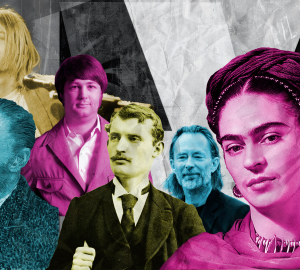by Allison Hambrick
About a week before Christmas, my older sister came to visit my family for the holidays. Naturally, it was a time for family and Netflix, but for my sister, the break was a blur.
Why? She spent much of it on her phone.
I couldn’t judge her for it because that would’ve made me a hypocrite. Anytime I went to a concert or out with friends or even just to work, my natural inclination was to post the goings-on of the day for everyone to see. But somehow, seeing someone else exhibiting the same behavior made me realize it wasn’t a pretty look.
I took to the internet, and of course, I realized that the discourse on social media is far more complicated. Most people fall into three categories: those who support social media, those who malign it, and those who treat it as a necessary evil. The more I considered my engagement with the online community, the more I realized that many of my more toxic habits could be traced back to one app: Snapchat.
In order to test the waters, I decided to deactivate my account and wait thirty days for it to be deleted. After realizing the ways that my life improved, I realized that I didn’t want to go back.
I text, call, and speak to my friends more often, and our conversations are better.
Snapchat allows you to send people short snapshots of your day. This can be a fun way to keep multiple people caught up on your life at once. You take one picture of your breakfast or the song playing on your radio or that weird thing your professor is doing, and you can send it to all of your contacts with one click. It’s similar to posting on Instagram or Facebook, yet it seems more personal because the snaps are documented as a conversation, and mechanics such as “streaks” encourage conversational interactions.
Taking that aspect of communication away worried me; I am an extreme introvert. I very rarely seek people out, whether it’s to talk or to hang out. As a result, I was afraid that I would use this as an excuse to isolate myself further. I could not have been more wrong. I talked to fewer people, yes, but our conversations were better. Instead of sending a generic snap to twenty people, I can send a more meaningful text to a classmate or call my best friend or take the time to tell my coworker about my day in person. I interact with fewer people than I did on Snapchat, but our communication is more personal and more mutual.
I severed some outdated friendships amicably.
My Snapchat account was created when I was in ninth grade, eight years ago. Everyone I met or befriended from the two high schools I went to, the six jobs I had and each interaction I had in college remained in my contacts. People I hadn’t seen in six years were mixed in with my best friends and people I just met, and the nature of Snapchat encouraged me to message all of them at once. Looking back on it, that sounds kind of crazy. Why would I send the same snap of a video game I played to a boy I liked in middle school, a girl I used to work with, and my mom? I would never have texted them about it.
Snapchat-user Allison was not cute, so killing her off was a breath of relief. After I disabled my account, I let a select few friends know that I wasn’t ghosting them and let the rest wonder. A few people asked about it, but most of my acquaintances didn’t seem to notice. This created a natural way to filter out the people who I am close with from those who I am amicably distant from. I don’t think there is anything wrong with recognizing that you don’t want to remain in close contact with someone. It doesn’t mean that you don’t like them. It doesn’t mean that you ignore them if they reach out. All it means is that you are focusing on the people who focus on you.
I am more in tune with my surroundings.
For some reason, Snapchat inspires people — even more so than Instagram — to stay plugged in at all times. I’m not too proud to admit that I have spent numerous times at a concert or watching a movie with my phone in hand recording. My favorite band as a teenager was Fall Out Boy, and though I’ve technically seen them three times, I don’t know if any of them count because I was watching them through the lens of my phone’s camera.
Taking away the distraction of making sure everyone else knows what you’re doing allows you to actually do it. I can never go back to my first concert and really pay attention to. I can never drive over to my friend’s old house and watch a movie with her and her brothers. I can never relive my life. I have to accept that for a time, I allowed social media to dominate my experiences, and for what? I realize now that it doesn’t matter to me. I would rather enjoy the blessings of a moment than regret recording it.
Social media is not a bad thing, and there is no right or wrong way to engage with it. My experience was that Snapchat was a drain on my social life. I put a lot into it with little return. I still have Facebook and Instagram, and I doubt that will change because I don’t have the same toxic relationship with those platforms. I’d like to think that if I start to recognize the same negative pattern developing, I would have the restraint to delete the problem. Social media can open a lot of doors, as long as you remember that it is okay to shut them.


























